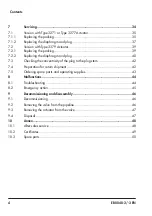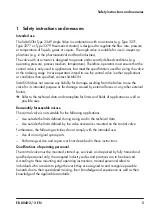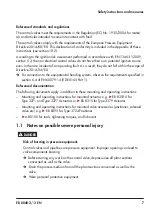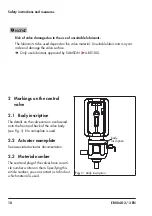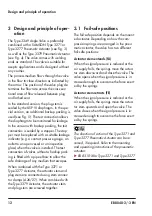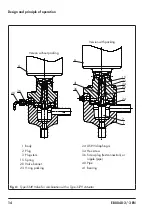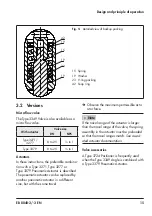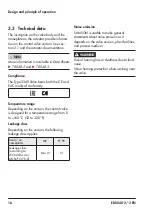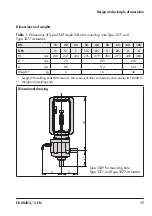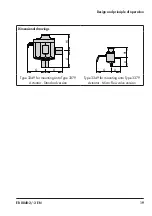
EB 8048-2/-3 EN
5
Safety instructions and measures
1
Safety instructions and measures
Intended use
The SAMSON Type 3349 Angle Valve in combination with an actuator (e.g. Type 3271,
Type 3277 or Type 3379 Pneumatic Actuator) is designed to regulate the flow rate, pressure
or temperature of liquids, gases or vapors. The angle valve is suitable for use in aseptic ap-
plications (e.g. in the pharmaceutical and food industries).
The valve with its actuator is designed to operate under exactly defined conditions (e.g.
operating pressure, process medium, temperature). Therefore, operators must ensure that the
control valve is only used in applications that meet the specifications used for sizing the valve
at the ordering stage. In case operators intend to use the control valve in other applications
or conditions than specified, contact SAMSON.
SAMSON does not assume any liability for damage resulting from the failure to use the
valve for its intended purpose or for damage caused by external forces or any other external
factors.
Î
Refer to the technical data and nameplate for limits and fields of application as well as
possible uses.
Reasonably foreseeable misuse
The control valve is not suitable for the following applications:
−
Use outside the limits defined during sizing and in the technical data
−
Use outside the limits defined by the valve accessories mounted on the control valve
Furthermore, the following activities do not comply with the intended use:
−
Use of non-original spare parts
−
Performing service and repair work not described in these instructions
Qualifications of operating personnel
The control valve must be mounted, started up, serviced, and repaired by fully trained and
qualified personnel only; the accepted industry codes and practices are to be observed.
According to these mounting and operating instructions, trained personnel refers to
individuals who are able to judge the work they are assigned to and recognize possible
hazards due to their specialized training, their knowledge and experience as well as their
knowledge of the applicable standards.




